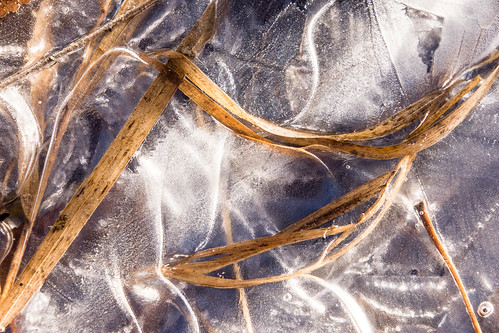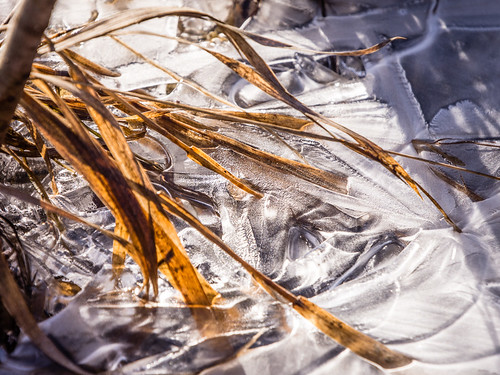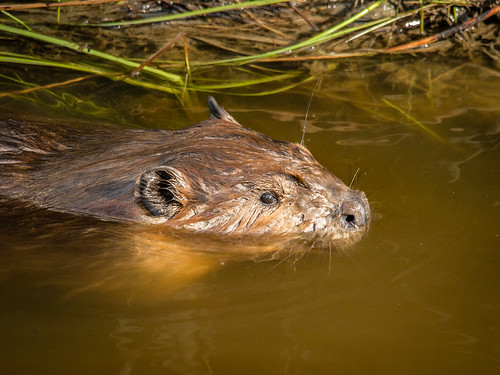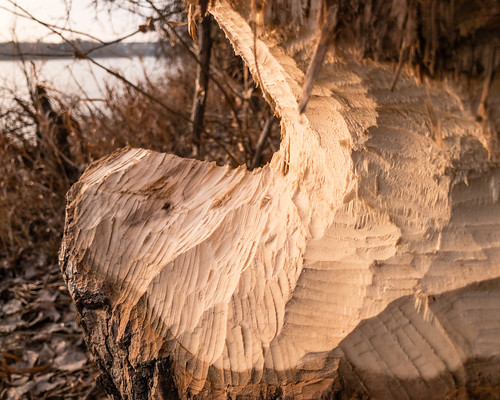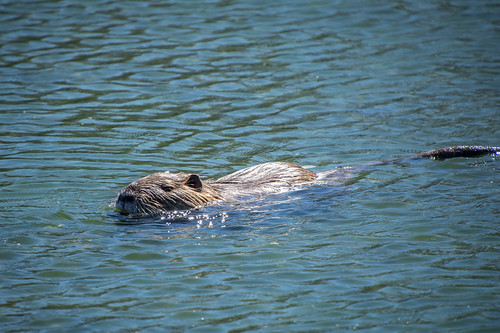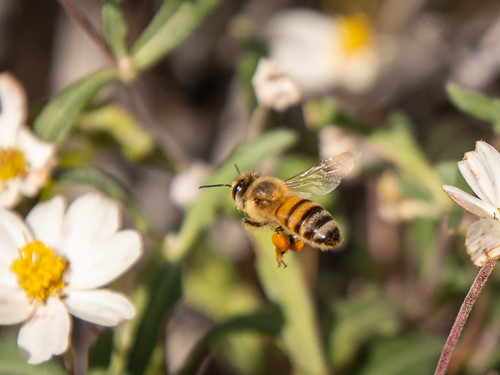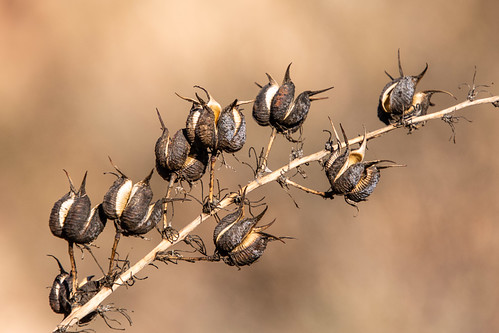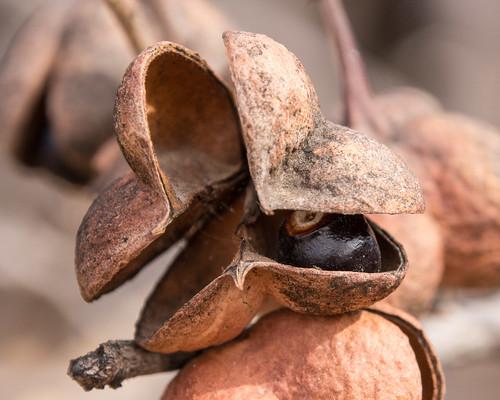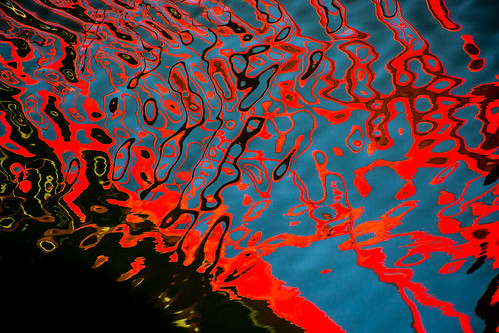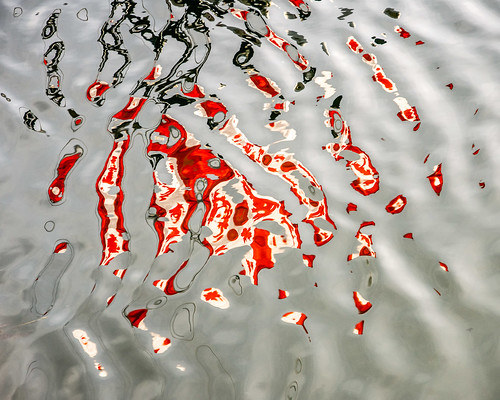Tuesday, 26 February 2019
EcoSask News, February 26, 2019
Upcoming Events
Enviro Collective Regina, Feb. 28 (Regina)
The Regina Enviro Collective is meeting from 7-9 pm, Feb. 28.
Carbon Sequestration on the Prairies, Feb. 28 (webinar)
Sean Chuan, ARECA, will present a webinar on carbon sequestration on the Prairies at noon, Feb. 28.
Water Conservation, Feb. 28 (Regina)
Join the Regina Horticultural Society for a discussion on irrigation and water conservation from 7-8:30 pm, Feb. 28.
SK Species at Risk, Feb. 28 (Saskatoon)
Greg Fenty will discuss the alarming decline in the number of Saskatchewan songbirds and other species at Wild Birds Unlimited at 7 pm, Feb. 28.
Contaminant Levels in Arctic Shorebirds, Mar. 1 (Saskatoon)
Katelyn Luff and Ella Lunny will discuss contaminant levels in Arctic shorebirds at 3:30 pm, Mar. 1, as part of the WildEcol seminar series at the U of S.
Wascana Park in Winter, Mar. 2 (Regina)
Join Nature Regina on their Wascana Park field trip from 9 am-noon, Mar. 2.
Judicial Review, Mar. 5 (webinar)
Learn about the basics of judicial review of government processes and decision-making from Charles Hatt, a staff lawyer at Ecojustice, from 1-2 pm EST, Mar. 5.
Smarter Science, Better Buildings, Mar. 5-22 (Moose Jaw)
Grade 7 students and the general public are invited to view the Smarter Science, Better Buildings exhibit at the Moose Jaw Western Development Museum March 5-22.
Species at Risk Farm Program, Mar. 6 (Assiniboia, Weyburn)
Heather Peat Hamm will discuss the species at risk farm program at 1 pm, Mar. 6, in Assiniboia and at 7 pm, Mar. 6, in Weyburn.
City of Saskatoon Climate Change Update, Mar. 6 (Saskatoon)
Kristin Bruce and Hilary Carlson will share a climate change update for the City of Saskatoon at the Mar. 6 meeting of the Energy Management Task Force.
Swift Current Creek Watershed Stewards AGM, Mar. 7 (Swift Current)
Everyone is welcome to attend the annual meeting of the Swift Current Creek Watershed Stewards at 1 pm, Mar. 7.
Looking Ahead
Balancing Self-Care & Community Care, Mar. 11 (Saskatoon)
The Saskatoon Enviro Collective is hosting a potluck supper and discussion about the balance and interplay between self-care and community care from 6:30-9:30 pm, Mar. 11. Register early as spots are limited.
Winter Camping Workshop, Mar. 19 (Regina)
Learn some tips and tricks for camping in below zero temperatures from 5:30-8 pm, Mar. 19.
A full list of upcoming events can be found on the EcoFriendly Sask Calendar
In the News
Hundreds of pounds of food waste are being turned into valuable compost at the University of Saskatchewan.
Cities need to consider the overall urban forest, not just individual trees: "Debates over infill often focus on highly visible local impacts, such as local vehicle trips and tree losses, but ignore the much larger traffic impacts and habitat losses that would result from more urban fringe development."
"Our habitual way of dealing with Mother Nature assumes that we talk and she listens, full stop, end of sentence. That habit hasn’t worked well, to say the least, and the further we push it, the more disastrous the results are likely to be. What we need to recognize, rather, is that we’re engaged in a conversation with the old broad. We said 'pollution,' she quipped 'zebra mussels;' we said 'internal combustion engines,' and she smiled and said 'coastal flooding.' We can listen to her responses and learn from them—or not, and find out the hard way what else she has to say."
"It has become a habit to walk my yard the way I walk in forests, with senses wide open to wonder."
EcoSask News is a weekly round-up of local news and events. Email us if you have items you would like us to include.
You can follow EcoFriendly Sask by liking us on Facebook, following us on Twitter, or by email (top right corner).
Labels:
Advocacy,
Assiniboia,
Birds,
Camping,
Climate Change,
Construction,
Law,
Moose Jaw,
Outdoors,
Prairies,
Regina,
Saskatoon,
Trees,
University,
Waste,
Water,
Weyburn,
Wildlife
Thursday, 21 February 2019
Building Wellbeing Together
We believe that a person’s wellbeing depends on the wellbeing of the community in which they live and work, while the wellbeing of their community depends on the wellbeing of society as a whole, and the long-term health of the natural world on which we all depend.”
It’s easy to fall into the trap of thinking that one person can do very little to shape the future. Nigel and Margaret Woodward refused to accept that perspective. After retiring to Totnes, United Kingdom, they began donating to a variety of environmental organizations. But this wasn’t enough – they wanted to take a more hands-on approach. After much thought and consultation, the couple decided to establish the Network of Wellbeing.
The Network of Wellbeing (NOW) is founded on a belief that individual wellbeing depends on the wellbeing of the community, the society as a whole, and the natural world. Evolving organically, the organization has grown to 5 part-time staff working on a variety of projects. Mirella Ferraz, the Totnes Project Coordinator, outlined the scope of Network of Wellbeing’s (NOW) activities.
Wellbeing in Totnes
The Network of Wellbeing’s initial activities were centred on its home town of Totnes.
Totnes Wellbeing Fund: In setting up NOW, organizers had asked community members what they needed and how the community could be improved. They learned that people had ideas and wanted to set up projects but needed some initial capital to help get the projects off the ground. As a result, NOW established the Totnes Wellbeing Fund, which offers small seed grants (under $1,000) to individuals and organizations in Totnes and the neighbouring areas to help them turn their ideas for boosting wellbeing into reality. Projects that have been funded in the past include a pond in the Follaton Forest Garden, Dartington Restore (repair café and workshops), and Wild and Curious (foraging walks and workshops).
Monthly Potlucks: NOW also noticed that there were limited opportunities for families with young kids, newcomers, and single people to meet other members of the community. They decided to organize a monthly community potluck and the idea took off in a big way. The first potluck attracted almost 40 people and the attendance quickly grew to 70-100. Bigger events with decorations and entertainment were held at Christmas and to celebrate the International Day of Happiness in March. After 5 years of monthly potlucks organized by NOW, a group of local people has taken on this responsibility so that the potlucks are “run by the community for the community.”
You Can’t Buy Wellbeing
Gross Domestic Product measures goods produced and services sold, but it doesn’t measure personal or community wellbeing. NOW has chosen to counter the dominant consumer culture by focusing on sharing, recognizing that there are many ways in which we can find fulfilment and meet our needs without money changing hands.
ShareShed: ShareShed, a library of things, was established in Totnes 1½ years ago. They now have 340 members who can borrow over 300 donated items. Share Shed opens its doors for several hours 3 times a week. The 5 most popular items are carpet cleaner, lawn mower, pressure washer, hedge trimmer, and projector.
Storage is a problem with items temporarily housed in NOW’s offices. The High Street location is a good one, but 2 flights of stairs limit visibility and accessibility. In addition to looking for more permanent storage space, the organization has applied for funding to buy a truck that could transport the 50 most popular items around the community. This would eliminate the need for a car in order to make use of the sharing library.
ShareFest: Totnes is an active community offering a great variety of activities and organizations. A large part of the community is ecologically minded, but others feel alienated by this approach, resulting in a subtle community division. Network of Wellbeing was discussing ways of bringing the community together and integrating it without attempting to convert when they heard about ShareFests.
ShareFests are “participatory events designed to connect the local sharing economy” and “celebrate ways we can share, make, swap and repair rather than always needing to buy new things.” Over 50 ShareFests have now been held in communities around the world, and Shareable offers a how-to guide and toolkit to help organize an event.
NOW wrote to community organizations inviting them to participate in the Totnes ShareFest in November 2018 as part of MAKE SMTHNG Week and got a great response. Over 800 people attended the day-long event and there were activities for everyone of all ages, ranging from an ugly Christmas sweater swap, crafts, and storytelling to tool sharpening and appliance and textile repairs.
Building a Wellbeing Network
NOW believes that wellbeing encompasses society as a whole and the natural world, and their activities extend well beyond the boundaries of Totnes.
Urban Wellbeing: Totnes is a small town and NOW was eager to see what could be done to promote wellbeing in a large city. A recent workshop in Leeds brought different organizations together to discuss compassion and wellbeing. It’s a trial project and they hope it will lead to a community festival of wellbeing.
Building Wellbeing Together: A national conference in 2017 brought together close to 100 people to discuss ways of building wellbeing together. The conference was designed to share the organization’s vision of holistic wellbeing and to encourage dialogue among professionals in the field. A second conference is planning for September 2019.
Webinars and Online Resources: NOW shares its knowledge and resources with as wide a population as possible. Online videos explore themes such as beyond GDP, putting welllbeing at the heart of government, and businesses’ role in promoting wellbeing.
The Network also runs regular free webinars with topics ranging from the role of happiness in social change to the nurturing power of soil, wellbeing and wildness, and growing your own happiness through gardening.
You can follow and participate in the Network of Wellbeing’s ideas and activities through their blog, by signing up for a monthly email update, or on social media.
See Also
Transition Town Totnes
Tuesday, 19 February 2019
EcoSask News, February 19, 2019
Upcoming Events
Wildlife Photographs, Feb. 21 (Saskatoon)
Kosala Rajapaksha will share his Saskatchewan and Sri Lankan wildlife photographs at the 7:30 pm, Feb. 21, meeting of the Saskatoon Nature Society.
Climate Change: The Facts, Feb. 22 (Moose Jaw)
Jim Elliott, Council of Canadians, will discuss provincial action on climate change at the 7 pm, Feb. 22, meeting of the Moose Jaw Nature Society.
Wascana Cross-Country Ski Family Weekend, Feb. 23, 24 (Regina)
Enjoy a weekend of cross-country skiing at Wascana Centre with rented equipment from 11 am-3:30 pm, Feb. 23 & 24.
Birds of Saskatchewan Book Launch, Feb. 26 (Regina)
Nature Saskatchewan will celebrate the launch of Birds of Saskatchewan at 7 pm, Feb. 26, at the Royal Saskatchewan Museum.
Jewelry Swap, Feb. 26 (Regina)
Swap jewelry or accessories from 7-8 pm, Feb. 26, at the Connaught Branch Library.
Saskatchewan Adventures, Feb. 27 (Saskatoon)
Kit and Julene will share their cross-country skiing adventures in Saskatchewan and there will be help with boot fitting at an event sponsored by SaskOutdoors at 7 pm, Feb. 27.
Building Operator Training, Regina – Mar. 1, Saskatoon – Mar. 29
Find out how to reduce energy costs and have a more comfortable building at a building operator training course offered by the Saskatchewan Environmental Society in Regina on Mar. 1 and Saskatoon on Mar. 29.
LEED Green Associate Training, Mar. 2 & 3 (Regina, Saskatoon)
University of Regina students can obtain LEED Green Associate Training demonstrating certified knowledge in the field from 12-5 pm, Mar. 3. University of Saskatchewan students can receive the training from 1-5:30 pm, Mar. 2, in Saskatoon.
Winter Camp, Mar. 16-17 (Great Blue Heron Provincial Camp)
Learn to winter camp successfully and comfortably on Mar. 16-17 at SaskOutdoor’s annual winter camp in Great Blue Heron Provincial Park.
Bird ID for Novice Birders, Mar. 18 (Saskatoon)
The Saskatoon Nature Society and the SK Breeding Bird Atlas are offering a free two-hour workshop on the basics of bird identification from 7-9 pm, Mar. 18.
Bird ID Workshop for Intermediate Birders, Mar. 22-Apr. 12 (Saskatoon)
The Saskatoon Nature Society and the SK Breeding Bird Atlas are offering 4 two-hour workshops on using your bird book and birding app to identify common breeding birds found in the Saskatoon area from 7-9 pm, Mar. 22, Mar. 29, Apr. 5, and Apr. 12. Space is limited so register as soon as possible.
Saskatoon Nature Society Field Trips
Saskatoon Young Naturalists
Mar. 16, 1-3 pm – Owl Pellets
Apr. 6, 1-3 pm – Birdhouse Workshop
Space is limited; register early to avoid disappointment.
Other Saskatoon Nature Society Field Trips
Feb. 24, 1:30-3:30 pm – Forestry Farm Park birding
Mar. 3, 2-3:30 pm – Montgomery Place birding
Mar. 9, 9 am-5 pm – Gardiner Dam field trip
Everyone is welcome. Check the Saskatoon Nature Society’s website for full details and updated information.
A full list of upcoming events can be found on the EcoFriendly Sask Calendar
In the News
The Council of Canadians, Regina Chapter, is calling for a just transition to renewable energy in Saskatchewan.
Pond leveller devices are a cost-effective, low-maintenance tool in a landowner’s tool box, and they allow for a happy co-existence with beavers.
Mid-block crosswalks make cities safer for pedestrians.
Listen for the coyotes - January to March is breeding season.
EcoSask News is a weekly round-up of local news and events. Email us if you have items you would like us to include.
You can follow EcoFriendly Sask by liking us on Facebook, following us on Twitter, or by email (top right corner).
Labels:
Beavers,
Birds,
Books,
Camping,
Construction,
Coyotes,
Energy,
Moose Jaw,
Pedestrians,
Photography,
Regina,
Renewable Energy,
Saskatoon,
Sharing Economy,
Ski,
Winter
Tuesday, 12 February 2019
EcoSask News, February 12, 2019
Upcoming Events
Waterfowl & Wetland Conservation, Feb. 15 (Saskatoon)
Howie Harshaw will share insights from waterfowl hunter and birdwatcher surveys into the human dimensions of waterfowl and wetland conservation at 3:30 pm, Feb. 15, as part of the WildEcol seminar series at the U of S.
Repair Café Prince Albert, Feb. 16 (Prince Albert)
Share and learn skills to repair things at Repair Café Prince Albert from 1-4 pm, Feb. 16.
Wascana Solar Co-op Group Buy, Feb. 16 (Regina)
Wascana Solar Co-op’s next group buy will be opening on Feb. 16 and will close Mar. 31. Contact groupbuy@wascanasolarco-op.com to apply and for additional information.
South American Birds, Feb. 18 (Regina)
Ed Rodger will give an overview of the South American pampas and birds from 7:30-9:30 pm, at the Feb. 18 meeting of Nature Regina.
Urban, Native & Invasive Plant Species, Feb. 19 (Regina)
Join WUQWATR from 1-4 pm, Feb. 19, at the Sunrise Library for an information session about urban, native, and invasive plant species. There will be family-friendly activities such as seed planting. Contact WUQWATR at 306-529-5125 or Courtney@wuqwatr.ca to reserve your free spot!
Bridging the Gap, Feb. 19 (Saskatoon)
Climate Justice Saskatoon will share their experience talking to people in the coal-producing communities of Estevan and Coronach from 7-8:30 pm, Feb. 19, as part of the Sustainable Speaker Series organized by the Saskatoon Public Library and the Saskatchewan Environmental Society.
Composting at Innovation Place, Feb. 19 (Saskatoon)
Saskatoon’s Innovation Place has launched a pilot organic waste management program. Tenants can find out more about this program at lunchtime on Feb. 19.
A full list of upcoming events can be found on the EcoFriendly Sask Calendar
In the News
The Electronic Recycling Association's Saskatoon depot collects unwanted/malfunctioning computers and electronic devices and donates the refurbished items to Canadian charities.
Premier Scott Moe has likely already won big by taking on Prime Minister Justin Trudeau on the carbon tax.
It's not enough to simply establish an urban nature reserve. It will require ongoing monitoring and community education. A bronze statue of a beaver wouldn't hurt either.
Gathering customer feedback is vital for non-profits as well as businesses.
EcoSask News is a weekly round-up of local news and events. Email us if you have items you would like us to include.
You can follow EcoFriendly Sask by liking us on Facebook, following us on Twitter, or by email (top right corner).
Labels:
Birds,
Composting,
Energy,
Government,
Innovation Place,
Non-Profit Organizations,
Plants,
Prince Albert,
Recycling,
Regina,
Repair,
Saskatoon,
Solar,
Urban,
Wetlands
Sunday, 10 February 2019
Seedy Saturday/Sunday & Other Green Thumb Activities in Saskatchewan
It’s never too soon to start planning ahead for spring planting. Below are upcoming Seedy Saturday and Sunday events across Saskatchewan as well as a list of organizations hosting garden-related events.
Seedy Saturday/Sunday
Yorkton, February 23
Yorkton Seedy Saturday will be held from 11 am-4:30 pm, Feb. 23, at SIGN on Broadway. Buy or swap seeds, local crafters/homesteading/canning, and more.
Prince Albert, February 24
Prince Albert Seedy Sunday will be held from 1-5 pm, Feb. 24, at the John M. Cuelenaere Library. Exchange seeds, buy heirloom seeds, learn about the importance of healthy soil, and kids can make seed bombs.
Lanigan, February 28
Lanigan Seedy Thursday will be held from 5:30-8:30 pm, Feb. 28, at the Lanigan Branch Library. There will be a small garden talk and question and answer at 6:30 pm.
Regina, March 2
Regina Seedy Saturday will be held from 10 am-3 pm, Mar. 2, at St. Paul’s Anglican Cathedral (1861 McIntyre Street). Talk gardening, buy seeds, enjoy the kids’ area, and get advice on how to plan your garden.
Moose Jaw, March 3
Moose Jaw Seedy Sunday will be held from 10 am-2 pm, Mar. 3, at the Moose Jaw Public Library.
Saskatoon, March 9
Saskatoon Seedy Saturday will be held from 10 am-3 pm, Mar. 9 at Station 20 West.
Indian Head, March 10
Indian Head Seedy Sunday will be held from 1-4 pm, Mar. 10 at the Indian Head Heritage Club (505 Otterloo Street).
North Battleford, March 23
North Battleford Seedy Saturday will be held from 12-4 pm, Mar. 23, in the Don Ross Centre Craft Room.
Meadow Lake, March 24
Meadow Lake Seedy Sunday will be held the afternoon of Mar. 24 at the Meadow Lake Senior Citizens Activity Centre.
For information about Seedy Saturday events across Canada, check the Seeds of Diversity website.
Additional Green Thumb Activities/Organizations
Blazing Star Wildflower Seed Company
Blazing Star Wildflower Seed Company supplies native wildflower and heirloom vegetable seeds and plants for gardens and restoration projects.
Saskatchewan Waste Reduction Council (Saskatoon)
The Saskatchewan Waste Reduction Council is offering a two-day training for individuals interested in joining Saskatoon’s team of compost coaches on March 2 and 3. Email compost@swrc.ca for more details.
Edible Landscapes Permaculture Design and Consulting (Regina)
Over the next few months, Edible Landscapes Permaculture Design and Consulting will be offering urban/edible perennial plant walks and foraging tours, an 18-hour course on edible and medicinal plants, and an introduction to permaculture.
Immersed in Nature (Saskatoon)
Immersed in Nature Photography will be offering nature immersion walks this spring and summer. Check their Facebook page for details.
Permaculture (Prince Albert, Regina, Saskatoon)
Join your local permaculture association:
Permaculture Regina
Permaculture Research Institute of Saskatchewan (Saskatoon)
Prince Albert Parkland Permaculture Guild
Regina Horticultural Society (Regina)
The Regina Horticultural Society holds monthly educational events.
Seed Libraries (Prince Albert, Saskatoon)
Seed libraries provide free access to viable native open-pollinated seeds.
Prince Albert Seed Library
Saskatoon Seed Library
The Garden Patch (Saskatoon)
The Saskatoon Food Bank and Learning Centre’s Garden Patch offers a wide variety of workshops throughout the gardening season. Check their Facebook page for details.
You can follow EcoFriendly Sask by liking us on Facebook, following us on Twitter, or by email (top right corner).
A full list of upcoming events can be found on the EcoFriendly Sask Calendar
Tuesday, 5 February 2019
EcoSask News, February 5, 2019
Upcoming Events
Owls on Tour, Feb. 9 (Regina)
Meet and learn more about burrowing owls at Cabela’s Regina at 2 pm, Feb. 9.
Wascana Winter Birds & Wildlife, Feb. 9 (Regina)
Nature Regina members will look for winter birds and wildlife in Wascana Park from 9 am to noon, Feb. 9.
The Magic of Trees, Feb. 13-Mar. 14 (Saskatoon)
Lee Dorey’s exhibit reminds us of the mystery and magic of trees and is on display at the Frances Morrison Library Gallery from Feb. 13-Mar. 14.
Young Leader Nature Grant, Feb. 15
Under 30? Apply by Feb 15 to Nature Canada for a young nature leader grant of $1000 for project implementation.
Great Backyard Bird Count, Feb. 15-18
Everyone of all ages and degree of expertise is invited to take 15 minutes from Feb. 15-18 to record the birds they see on the Great Backyard Bird Count website.
Looking Ahead
Project Wet, Mar. 16 (Regina)
SaskOutdoors is hosting a Project Wet workshop for K-12 teachers in Regina from 9:30 am-3:30 pm, Mar. 16.
Workforce Connex Saskatchewan: Indigenous Renewable Connections, Mar. 20
Indigenous employees, students, and businesses along with renewable energy employers and industry are invited to make connections and build relationships at the Workforce Connex event at the U of S, Mar. 20 from 8:30 am-4:30 pm.
Basic Wildlife Rehab. Course, Apr. 6-7 (Saskatoon)
Living Sky Wildlife Rehabilitation is hosting a two-day introduction to wildlife rehabilitation on Apr. 6 & 7 in Saskatoon.
A full list of upcoming events can be found on the EcoFriendly Sask Calendar
In the News
The Supreme Court ruling isn’t enough. Regulations are needed to address the problem of inactive or orphan oil and gas wells.
Wildlife-friendly road infrastructure can dramatically reduce collisions - and save people money.
Modernizing urban freight deliveries - micro hubs and cargo cycles.
Central Alberta citizens have banded together to fight a huge new water licence for fracking on their local river, a tributary to the North Saskatchewan River, the source of Edmonton's water.
We need to make sure we source green tech minerals in a socially and environmentally responsible manner.
EcoSask News is a weekly round-up of local news and events. Email us if you have items you would like us to include.
You can follow EcoFriendly Sask by liking us on Facebook, following us on Twitter, or by email (top right corner).
Labels:
Art,
Birds,
Education,
Government,
Grants,
Indigenous,
Industry,
Regina,
Renewable Energy,
Saskatoon,
Technology,
Transportation,
Trees,
Water,
Wildlife,
Wildlife Rehab
Friday, 1 February 2019
The Pros and Cons of Geothermal Energy
The federal and provincial governments are providing financial support for a geothermal energy plant in southeastern Saskatchewan. DEEP Geothermal’s plant will drill down 3.5 kilometres into the hot sedimentary base of the Williston Basin, making it the deepest well ever drilled in the province. The geothermal fluid will be pumped through heat exchangers, creating steam to drive the generators. Brine from the source well will be re-injected into the ground.
Geothermal energy uses heat stored in the earth’s core to generate electricity. The earth’s core is hot enough to melt rocks, creating magma. Sometimes the magma escapes as lava, but it normally stays below the earth’s surface heating the surrounding rocks and water. The heated water can form hot springs or geysers, but it usually remains below ground in geothermal reservoirs. By drilling into the reservoir, hot water can be pumped up to the surface and used to generate electricity or heat individual buildings. In some locations, if there is no water or steam to extract, the rock is cracked and water forced through it to be heated and pumped for use. This is referred to as enhanced geothermal.
Although geothermal energy provides only a very small proportion of energy worldwide (0.3%), it makes a much more significant contribution in some areas. Geothermal plants produce approximately 30% of Iceland’s electricity, while geothermal heating meets the heating and hot water requirements for 87% of the nation’s housing.
The proponents of geothermal energy are quick to point out its many benefits with SaskPower’s website noting its reliability, lack of emissions, and small environmental footprint. Unfortunately, very few things in life are quite that simple, and geothermal energy is no exception. The pros and cons of geothermal energy are mixed and complex.
Reliability: Unlike wind and solar energy, geothermal energy is not limited to certain days or times of day. Many view it as a renewable resource, but that is not the case if the groundwater reservoirs are depleted. Similarly, aggressive extraction can surpass natural limits resulting in financial losses as the power plant is unable to function at full capacity.
Location & Cost: In theory, geothermal energy can be produced anywhere, but it is a much more reasonable proposition when the heat is close to the earth’s surface as is the case in Iceland. Geothermal power plants have much higher up-front costs than other power plants. One can only assume that costs, both financial and environmental, will rise the deeper one has to dig to reach the heated rock and water.
Geological Stability: Extracting and re-injecting hot fluids into the ground can cause the ground to settle and may generate earthquakes. In most cases, the earthquakes associated with geothermal energy production have been minor, but concerns have been raised by larger earthquakes in Switzerland and South Korea near enhanced geothermal facilities.
Re-injecting spent fluids into the well is supposed to prevent land subsidence by replenishing the reservoir; however, the fracking industry’s practice of reinjecting waste liquids into disposal wells has been linked to earthquake activity. Recent seismic activity near a fracking site in northeastern British Columbia measured between 3.4 and 4.5 magnitude.
Health & Environmental Problems: The water or steam that is brought to the surface often contains hydrogen sulphide, which is released into the environment as gas, causing health and environmental problems. Concerns have already been raised in Saskatchewan about leaking gas from fracking operations - will the geothermal plant generate similar concerns? Reports indicate that hydrogen sulphide from geothermal plants has increased the seriousness of respiratory problems and asthma in Reykjavik. Hydrogen sulphide can also lead to “increased corrosion of metals, increasing the costs of replacement of circuit boards and other complicated electronics.”
Noise pollution can be substantial during drilling, construction, and operation, affecting both nearby residents and wildlife. It will be interesting to see whether this concern is adequately addressed by a German company constructing a 50 MW geothermal facility in the heart of Munich. The company’s noise prevention measures include “ongoing measurements in order to be able to locate and control noise sources immediately, noise barriers, a particularly quiet drilling rig and adapted construction site logistics. Thus, the noisy delivery and unloading almost exclusively during the day.”
Pipes can leak, and DEEP Geothermal’s CEO acknowledges the importance of monitoring the pipes carrying the brine, particularly in an agricultural area.
Water Supply: Geothermal processes use a lot of water and may require external water sources to maintain their operations. Is there an adequate water supply in southeastern Saskatchewan to meet the needs of residents, agriculture, recreation, and nature as well as industry?
Wildlife & Natural Beauty: Has a detailed environmental assessment been carried out to examine the potential impact of the geothermal activities near Estevan on wildlife and plants? A geothermal facility in Hell’s Gate National Park, Kenya, contains “Miles and miles of pipes – some high enough off the ground that trucks can pass underneath and giraffes won’t hit their heads” - carrying steam to huge power plants also located in the park. One can only question the impact this has on wildlife and tourism, a major economic driver in East African countries.
It’s great to see money being invested in a renewable energy project, particularly one in southeastern Saskatchewan, which has been for so long reliant on coal for employment and a strong economy. However, let’s make sure that all the potential risk factors receive due consideration and mitigation. All necessary steps must be taken to protect humans, wildlife, and nature.
Geothermal Energy Pros and Cons
10 Geothermal Energy Pros and Cons
How Does Geothermal Drilling Trigger Earthquakes?
South Korea’s Most-Destructive Quake Probably Triggered by Geothermal Plant
The Hidden Price of Iceland’s Green Energy
Saskatchewan Firms Aims to Build Canada’s First Geothermal Facility
Subscribe to:
Posts (Atom)
